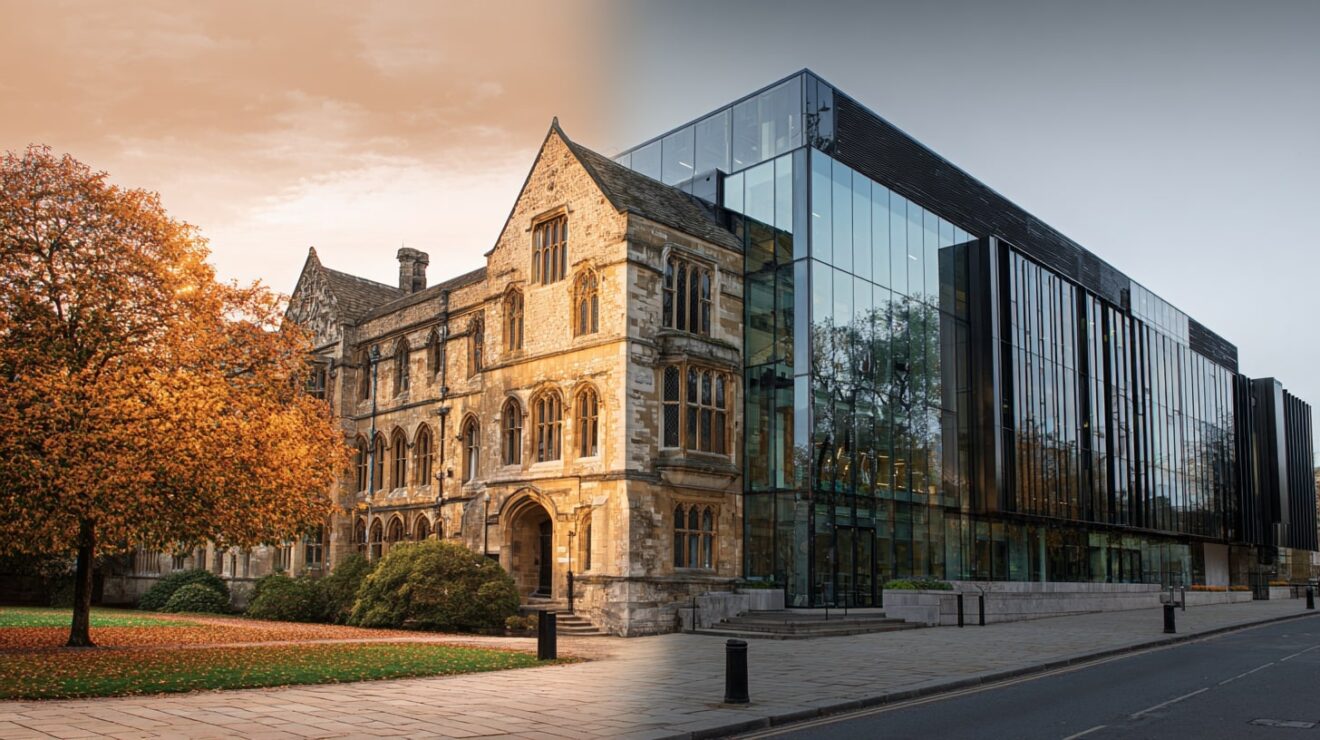Trips like the recent Wonkhe SUs Baltics and Finland tour really get you thinking.
In the UK we tend to develop mimetically – that is, we tend to gradually steal, copy and refine each other’s ideas. It’s why – other than a bit of branding – most SUs are remarkably similar.
So a look at other countries’ SUs is both initially jarring but ultimately a highly creative process. I thought I’d try and capture some of those creative conversations with SUs on the trip and develop a hybrid “fantasy SU” based on lots of the things we saw.
Welcome to Baltfin SU
The Union exists to make life easier for students, to provide enrichment and community building opportunities as well as to advocate for and on behalf of students and their rights. To deliver this, the SU is funded by the institution by a ratio of 1:200 of institution fee income – but all students (and their parents) are invited to voluntarily donate to the SU on enrolment.
Services
Locally, the SU works with other SUs and Institutions to govern Student Health Association Services, which draws specific funding to deliver health services to students in the city.
The SU complies with national policy from NUS which establishes the maximum fee that can be charged for basic meals. This scheme draws on governmental grant, which subsidises student catering. The grant itself is based on a per-student levy taken by government from Institutions.
Student opportunities
The SU supports and develops a range of opportunities for students to take part in, which develop their interests, support their community and civic engagement, mental health and which enrich their academic and career ambitions.
As well as training and housing activities where possible, the SU uses a portion of its grant funding to develop student opportunities in line with the SU’s values and student concerns at the time. Within the range of student organisations and opportunities, a number which are crucial to the delivery of the SU’s work, such as liberation campaigns and sustainability campaigns, will fall into wings of the SU which attract longitudinal funding and support.
A portion of the funding is allocated to projects rather than student groups. This allows for ad-hoc student ideas for events trips and initiatives to be funded.
Clubs and societies exist in association with the union rather than being registered as a part of the union. Each society is an independent organisation, responsible for its own activities. Affiliation to the union is subject to various requirements around risk, responsibility and development, and is the only way that the society can access facilities, resources, representation and the development work of the union and university. The union has the power to disaffiliate a club or society.
Induction and support
The union supports student engagement in opportunities by running freshers’ fairs as well as induction activities to student life at the institution, including pre-freshers residentials, training and buddying systems. These build social capital and involve commuters as well as residential students.
Peer guides
The recruits, trains, manages and pays Peer Guides, with each guide taking on no more than 10 new students. These guides run a programme of personal induction which includes advising on registration, campus life, module selection and student opportunities and rights.
Freshers’ camp
Each year starts with a residential camp, run by the SU and Faculty Unions, which comprises activities to help students get to know each other, form supportive communities and learn about the work, cultures and ambitions of the SU, the Faculties and the university.
Alumni
SU Alumni play a significant role in the memory and support infrastructure of the union. As well as supporting handover and induction, former officers engage in the election assessment centres, the ongoing support of the current team and indeed throughout each level of representation in the union. They are consulted on developments of the SU and the university.
Union staff
The SU employs a team of professional staff to advise and deliver aspects of the union’s activities. Led by a Chief Executive, the team includes specialists working in communication, advocacy, counselling, policy, student training and development, commercial services and events – as well as finance, governance, human resources and management. There are no artificial departmental splits between representation and activities.
Constitution
- Articles – which detail the purpose and nature of the Union, as well as the structure of how the Union’s objects will be delivered.
- By-laws – which outline the rules and configurations of areas of the union’s work, such as elections, committee structures and codes of conduct.
- Policy book – Policy exists in the Policy Book and does not lapse, unless changed by students. The Policy Book is more of a resource for the Union’s representatives and staff, it guides the Union’s work, and establishes what the Union believes. It is effectively the law of the Union, and like legislation in society, only changes when people decide they must change. The Union has a rolling system of updating the policy book, with a prescribed time when the policy can be revisited. This does not prevent emergencies if circumstances change.
Policy focus in linked to what can be done within the resources the SU has, and is focussed on student matters. Broader areas that do not exclusively impact on students are dealt with in partnership with other organisations, which could include the other Unions and student organisations within the Institution or local and national organisations.
Council debates the work-plan, what should be done, the priorities and scrutinises the work of the Board. Council itself is active in the delivery of the Union’s policy. Council may also decide to edit or create policy, should this be necessary.
Executive
- President is elected by Council.
- President presents their Board as a part of this election.
- Council comprised of Faculties executives.
- Faculty unions elect from all students within the faculty.

Representation
Within the Union
Faculty Union Presidents (and Unions)
The Faculty Unions are at the core of student representation at the University. The central union works at the institutional level and provides structure, direction and development for student representation overall. If a faculty were to strongly disagree with a course of action proposed by the union, they effectively have the right of veto.
Students’ Union President
The SU President is a full-time sabbatical role, elected from within Student Council, and is Chari of the Council. Once elected, the President presents their Executive team for ratification by the Union Council. It is convention that the Council ratify the Executive. The President has the option to include a maximum of one person on the Executive who is not a student of the University. The President is personally accountable for the work and activities of their executive.
Election Support Assessment Centres
Candidates put themselves forward for specific roles. They go to a weekend away – usually with Alumni – at the end of the time away the election committee draft a list of suggested candidates and may intervene in some cases to persuade one candidate to go for a different job from that which they applied in the first place.
At School and Faculty
The faculty unions select representatives to sit at Faculty level and are concerned with the social, academic and wellbeing of students within their faculty. The Faculty Union Councils are elected cross-faculty and anyone can stand. The Faculty Union Presidents are elected from within the faculty Union Council, but the entire Faculty Union Council are members of the council.
Faculty Union Presidents have control of their own budgets and are independently accountable to their Faculties. Like the Union President, Faculty Presidents select their executive teams once elected. All representatives must pass the SU test to cast any votes on Union, University or Faculty committees.
Institutional representation
The SU board and chosen faculty members sit at institutional level. All institution committees guarantee that a minimum of 20% of the committee members are students. Students on institution committees have the right of veto on any decisions which directly concern students. The decision to exercise the veto must be unanimous amongst the student reps.
Course Representation
Course representation is delivered as a part of the Academic Society system. Each programme has a number of student representatives who work with academic staff to assess the work of their programme, identifying opportunities and barriers, developing the programme and the student and staff experience on those programmes. Representatives also sit at School and Faculty Level.
Course reps are selected by their course peers and are a part of the School’s Academic Society, linking the experience within the programme itself with the wider student experience. The Society itself will elect course reps to represent on School level committees.
Faculty appointments are made by the Faculty Union. The Faculty Union convenes the respective academic societies to consider issues and opportunities as they arise. At each level, course, school and faculty, the Union supports to combine rep coordination, pedagogic input as well as host income-generating careers activities as well as social and wellbeing activities.
Voting for the rector
The University Vice-Chancellor is elected into post, by the staff and students of the University. The SU council can suggest who the union votes for.
Complaints and appeals
All student reps at a course level are well acquainted with institutional regulations. Advocacy starts locally, with student reps able to explain various institution regulations to students and act as a conduit which directs students to the Union’s central advice service. The SU itself will intervene directly on cases where policy (such as feedback time) is not being followed. All boards which have the power to sanction students will consist of 50% students who are trained and supported in their juror role by the Institution.
Student Ombudsperson
There is a student ombudsperson who shall adjudicate when there is a dispute between a student and the institution.
Quality advocacy
For anyone who is elected or selected to be a representative of the union, they must pass the Union Volunteer Test which demonstrates their understanding of the union, the institution and the procedures in place around student rights and opportunities.
The SU trains and develops all representatives, from institutional committee members, to society chairs, course reps, campaign and project leads. These are all classed as SU volunteers and must pass the test to be able to access budgets and support, facilities and positions on committees. They may not vote in any functions of the SU or institution (other than the voting entitlements which they hold as a union member) if they have not passed the test.


















